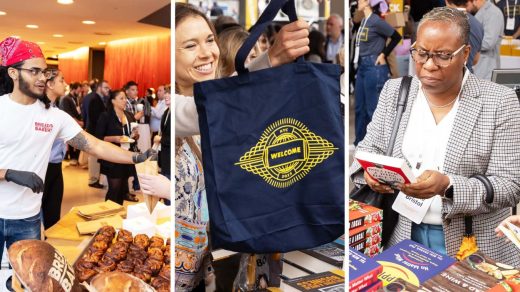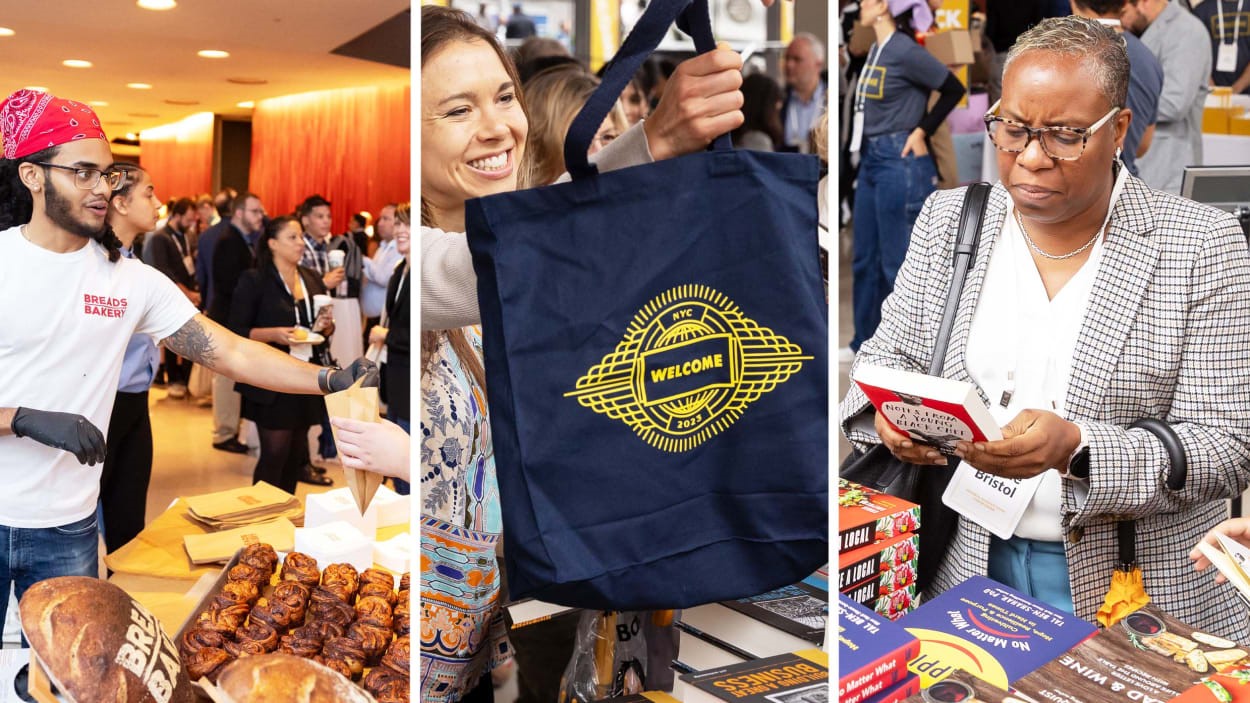Why restaurants are putting kindness and leadership on the menu
“Can I give you a hug?”
It was a simple but strange request at a business conference. Still, the speakers stepped toward each other, arms outstretched, and embraced. The crowd applauded as the two women, each with a long list of professional accolades, smiled, waved, and exited stage left. It was just the first of many onstage hugs.
This was the Welcome Conference, a one-day event for people in the hospitality business. It’s put on by Will Guidara, a former co-owner and general manager of Eleven Madison Park, the New York City restaurant named best in the world under his watch. Guidara’s book, Unreasonable Hospitality, came out in October 2022, and he’s spent the past year espousing its message: There’s remarkable power in giving people more than they expect.
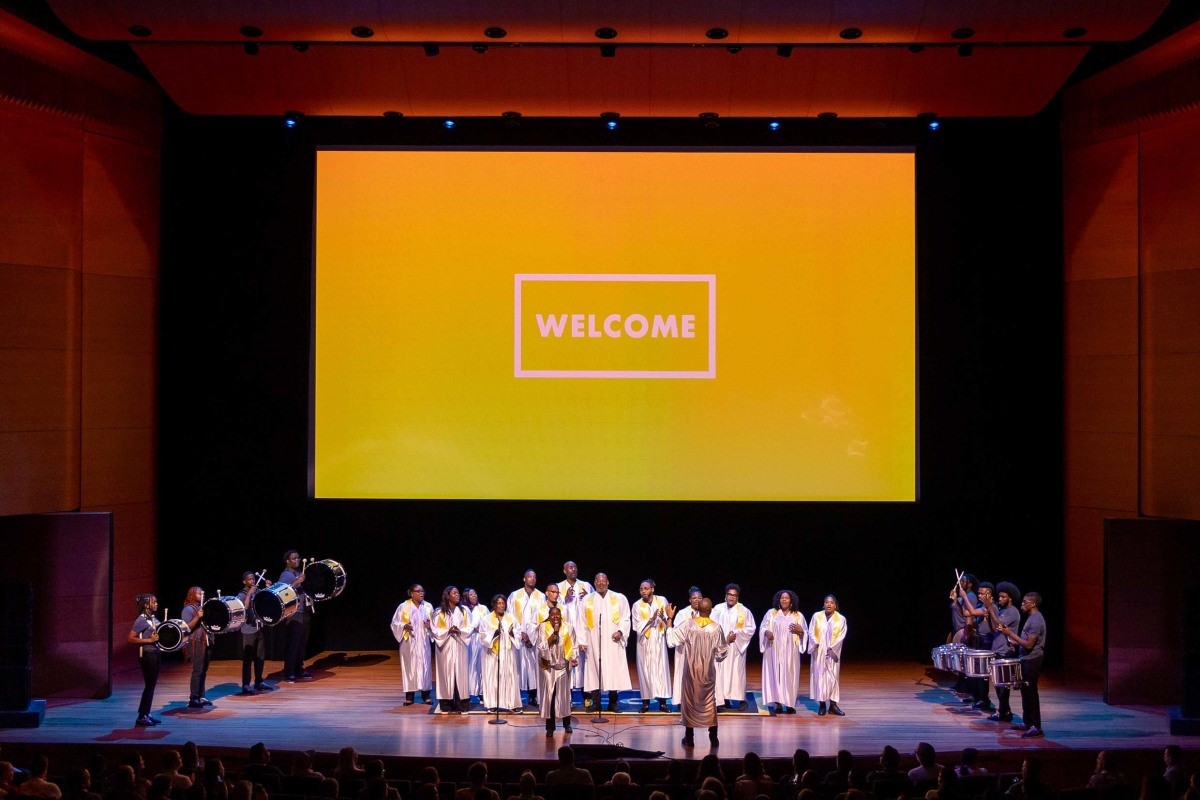
The day feels like a manifestation of that desire, largely because it hits you in the face with the unexpected. As the lights lowered that morning at Alice Tully Hall in Lincoln Center, a gospel choir slowly took the stage, singing “welcome back” on repeat, their voices climbing to an impressive crescendo before a drum line stepped out of the wings and joined in. It was a lot for 10 o’clock on a rainy Monday morning.
That was the point.
I knew I was supposed to leave feeling inspired. I didn’t expect it to feel so . . . nice.
I probably should have. Guidara runs a consultancy called Thank You. His previous hospitality company, Make it Nice, once opened a restaurant called Made Nice. It would’ve been unreasonable for the day’s featured speakers not to hug. The point of the day, produced in partnership with Resy and American Express, was to energize and inspire an audience of 880, most of them leaders and employers in the restaurant business, with tales of simply being kind and caring—and hospitable.
That’s a lot of warm and fuzzy for an industry that’s been through a lot.
Restaurateur Danny Meyer released his hospitality book, Setting the Table, in 2006. Then, the general public’s notion of restaurants skewed more band-of-misfits-in-the-kitchen, as immortalized by Anthony Bourdain. Later came Mario Batali and #MeToo, and numerous stories of abuse in kitchens that would take down prominent chefs and business owners. Restaurant award shows were canceled and revamped, and powerful food media outlets were forced to look long and hard in the mirror of culpability.
Then a global pandemic would disrupt and define the restaurant business for years. Restaurants closed. Aid was hard to come by. The industry stepped in to take care of its own.
In the first session of the day, Meherwan and Molly Irani, a married chef-restaurateur team from Chai Pani in Asheville, North Carolina, talked about how they thoughtfully closed a restaurant, reorganizing an agonizing list of to-dos around the interest and well-being of their staff.
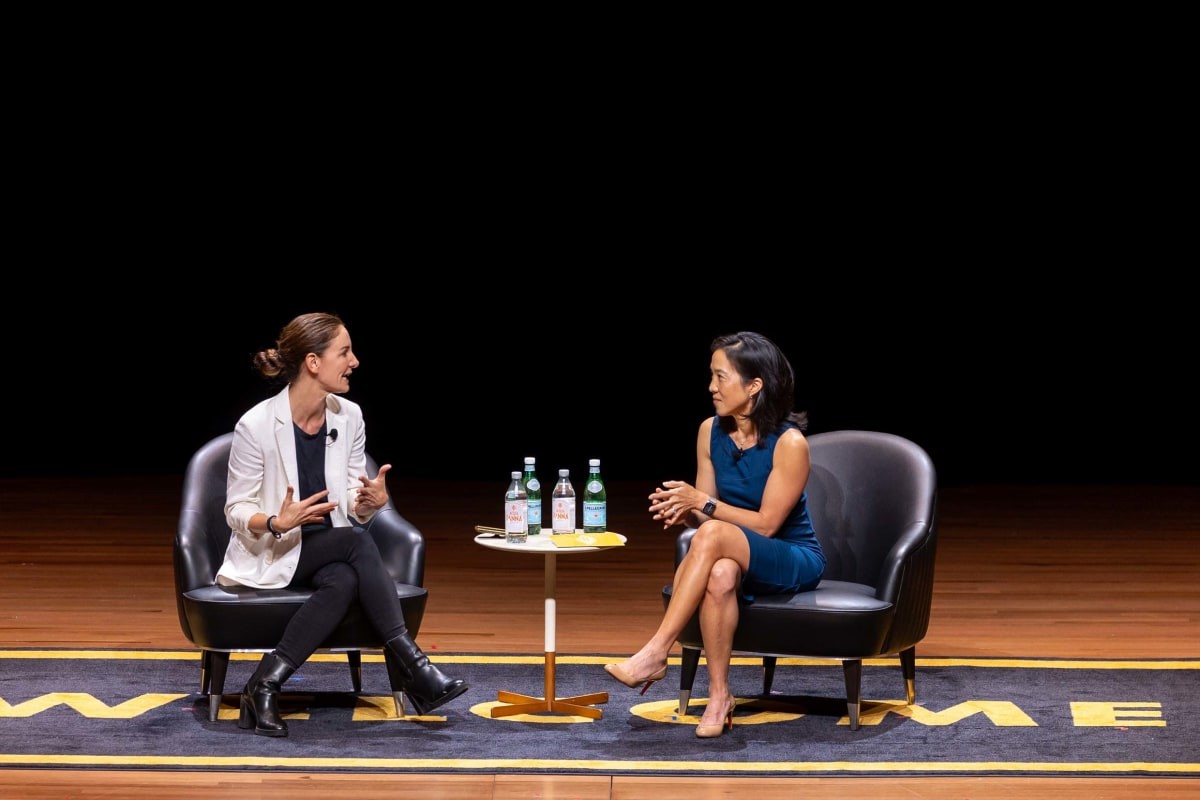
Later, chef Chris Shepherd detailed how his Southern Smoke Foundation, built as a side project, distributed millions of dollars in aid to people working in food and beverage. Its support has helped workers through the pandemic, through disasters including the recent wildfires in Maui, and through mental health challenges that can come with a life of giving to others. Other presenters divulged stories of abuse, HIV diagnosis, poverty, drug dealing, mental illness, and other topics previously prohibited in polite conversation.
There was a sense that past mistakes, pressure, and reality had broken the industry wide open. Enter Guidara and his brand of unreasonable hospitality—heir apparent to the legacy of being nice—inspiring a certain type of leader.
After lunch, Harvard lecturer Tal Ben-Shahar spent a lot of slides detailing exactly how stress is catastrophic to success. With no breaks, no self-care, we get no relief. With no relief comes burnout. Ben-Shahar is a happiness expert with eight books on the topic; in 2022 he launched a master’s degree program in happiness studies.
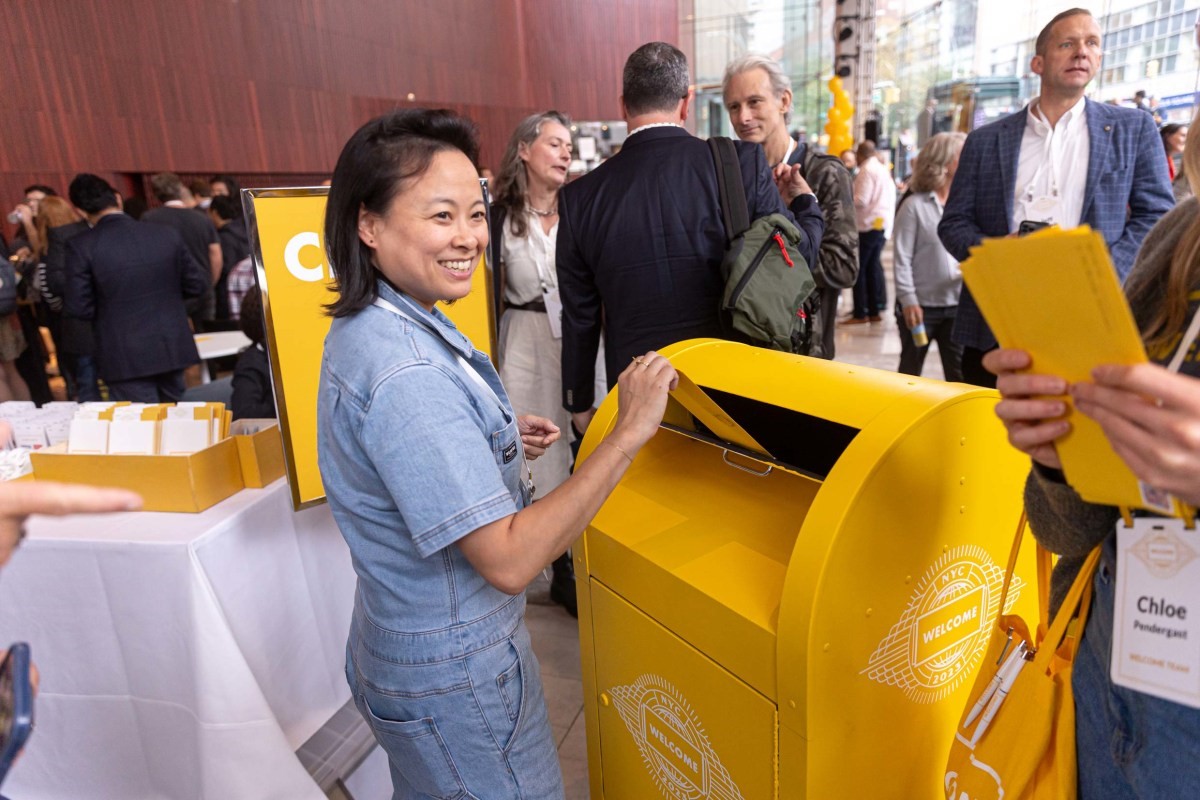
The worst leaders are those who give freely to others above all else. I could sense the room full of hospitalitarians nervously looking down at their hands. Then, redemption: The happiest and most effective leaders give a lot, too, Ben-Shahar said. They give to others, but they also make time to give back to themselves. There was a collective sigh of relief.
The day felt less like a conference and more like a show. We laughed watching a video produced by Eli Sussman, creator of the hilarious restaurant insider meme account @thesussmans. In a mock “86 News” broadcast, he poked fun at all the things restaurant people love to hate: chef Rene Redzepi and his Copenhagen restaurant Noma; tweezer food; and natural wine. “86” is its own inside joke, restaurant lingo for taking something off the menu.
We cried as John Gargano, a formerly incarcerated general manager of Tom Colicchio’s Craft restaurant in New York City, recounted his story of receiving clemency from President Barack Obama after well over a decade spent in federal prison for a first-time drug offense.
Honestly, by that point, I needed a hug.
The Welcome Conference has run for almost a decade, save for a pandemic-induced two-year break starting in 2020. What started as a way to gather restaurateurs and other front-of-house staff has evolved to include leaders and lessons from other industries. But at its core, the Welcome Conference is a restaurant conference for restaurant people.
Amid the emotional whiplash of the day, there were perks. Great food, mostly. A wall of hanging chocolate babka from Breads Bakery for breakfast. Fluffy squares of chef Wylie Dufresne’s Stretch Pizza and Milk Bar ice cream for the heaviest afternoon snack. We pulled our own espresso shots from La Marzocco and drank a lot of sparkling San Pellegrino. At the end of the day, there were trays of colorful cocktails and a table of full champagne flutes.
Restaurant people, we like what we like.
Yes, the drinks were fancy. But the entire program was in service of service work. Speakers made it clear that the best restaurants, the ones that provided the sort of unreasonably hospitable guest experience, were also the most socially responsible.
In a speech titled, “How bad do you want it?” the day’s best, chef Kwame Onwuachi, detailed how he rose from a kid selling candy to strangers on the New York City subway to opening Tatiana, his restaurant that’s a love letter to New York. Tatiana was recently named number one in the city by New York Times restaurant critic Pete Wells.
Onwuachi recalled his childhood spent in a one-bedroom apartment in the Bronx, and his days spent battling racism in the dish pit of a restaurant in Baton Rouge, Louisiana. His story reminded all of us how these messages of kindness and acceptance from the top eventually filter through the ranks and into the dining room.
“I believe I have the most diverse fine-dining restaurant in New York City,” Onwuachi said. It’s a place, he said, where many diners and staff feel important, maybe for the first time.
(20)

